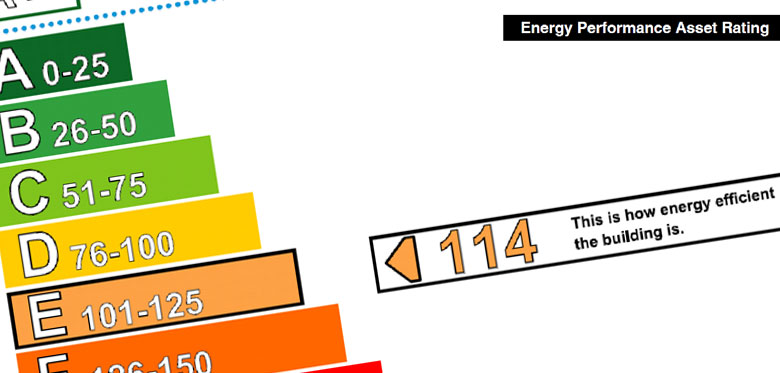From 01 April 2018, landlords will no longer be able to agree new lets or renew tenancies for properties with an Energy Performance Certificate (EPC) rating below an E.
This legislation will be extended to all existing tenancies from 01 April 2020.
Landlords are therefore urged to check the EPC ratings of their rental properties and improve the EPC ratings in 2017, to avoid potential problems next year.
What is an EPC?
Energy Performance Certificates (EPCs) are needed when a property is:
- Built
- Rented
- Sold
An EPC must be requested before a property is put on the market to sell or rent.
An EPC contains:
- Details about a property’s energy use and average energy costs
- Advice about how to reduce energy use and save money
An EPC provides a property with an energy efficiency rating from A (most energy efficient) to G (least energy efficient) and is valid for 10 years.
Buildings that don’t need an EPC
These include:
- Places of worship
- Temporary buildings that will be used less than 2 years
- Stand-alone buildings with floor space of less than 50 square metres
- Industrial sites, workshops and non-residential agricultural buildings that don’t use a lot of energy
- Buildings that are due to be demolished
- Holiday accommodation that’s rented out for less than 4 months a year or is let under a licence to occupy
- Some listed buildings
- Residential buildings intended to be used less than 4 months a year
Scope
The Energy Efficiency (Private Rented Property) (England and Wales) Regulations 2015 (SI 2015/962) (MEES Regulations 2015) introduced two important measures:
- A right for a tenant of a domestic private rented property to make energy efficiency improvements
- A requirement that a Landlord ensures their domestic and non-domestic private rented property reaches minimum efficiency standards
The MEES Regulations 2015, provides that where the property has an EPC rating below an E (sub-standard), subject to exemptions, a landlord may not:
- Grant a new tenancy or extend or renew an existing tenancy of a private rented property (both domestic and non-domestic) on or after 1 April 2018
- Continue to let a domestic private rented property on or after 1 April 2020
- Continue to let a non-domestic private rented property on or after 1 April 2023
Properties not within the scope
Not all properties are subject to the MEES Regulations 2015, these include:
- Property that is being sold, rather than let
- Owner-occupied property
Improving energy efficiency
Improvements that could save the most energy depend on the property, but typical examples include:
- Insulation (solid wall, cavity wall or loft insulation)
- Draught-proofing
- Double glazing windows
- Low energy lighting
- Thermostatic valves on radiators
Penalties for non-compliance
Penalties for letting a sub-standard private rented property for less than three months from service of the penalty notice are:
- Up to £2,000 for domestic private rented property
- From £5,000 or 10% of rateable value up to £50,000 for non-domestic private rented property
- A publication penalty
Penalties for letting a sub-standard private rented property for three months or more from service of the penalty notice are:
- Up to £4,000.00 for domestic private rented property
- From £10,000 or 20% of rateable value up to £150,000 for non-domestic private rented property
- A publication penalty
Landlords check your EPC rating this spring
A rental property is one of a landlord’s most important assets.
Landlords are urged to plan ahead and ensure that their rental properties are fit for purpose and compliant with upcoming legislation.


